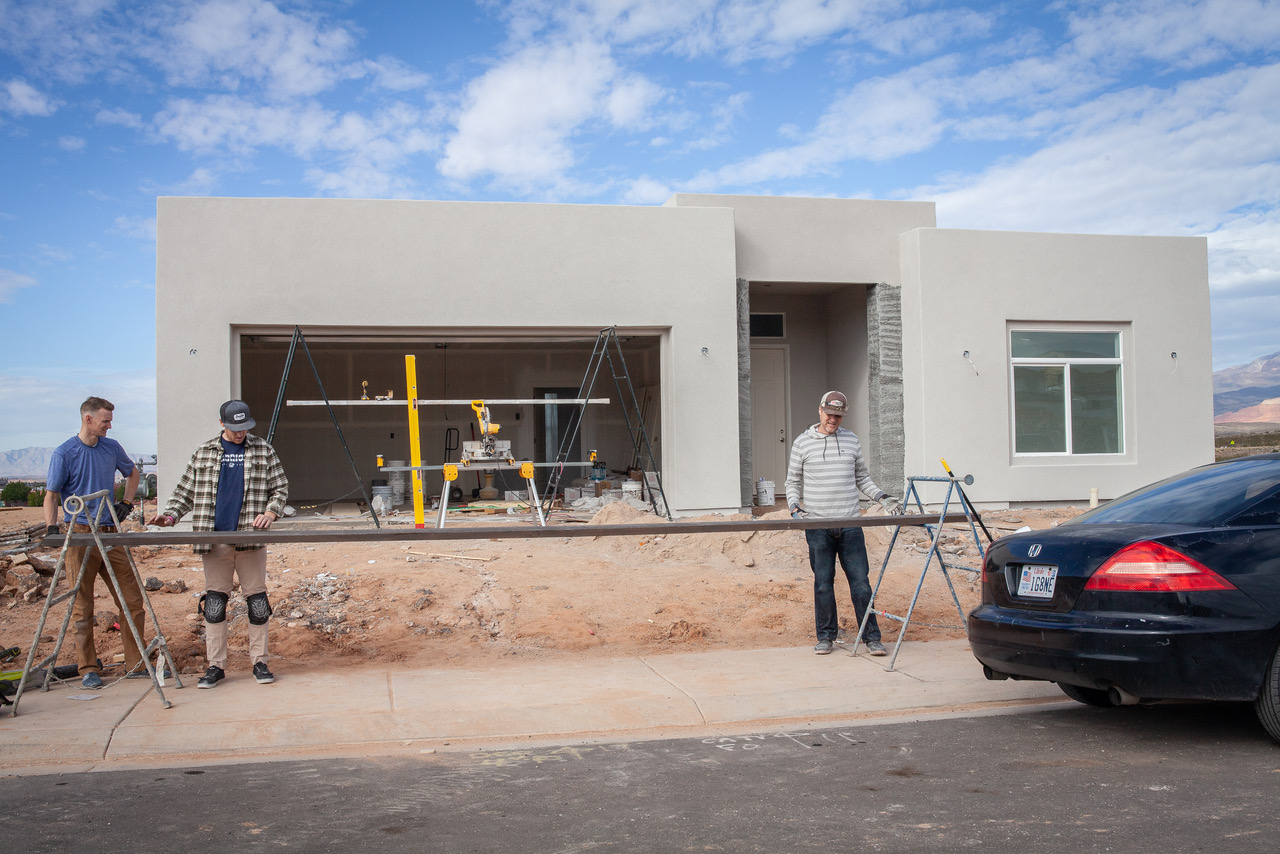
HURRICANE — Seven more low-income families started construction on their own homes in early December through the Mutual Self-Help Housing Program, a program that helps low- to moderate income families realize their dream of home ownership.

The advantages of the Self-Help program include very low interest rates, 33- and 38-year mortgages, $500 down payments, and closing costs that are worked into the loan. Most families also receive monthly subsidies, depending on their income and situation.
“All of these factors make the mortgages very affordable,” Julie Lindquist, spokeswoman for Self-Help Homes, said in a press release., “which is something a lot of families desperately need right now.”
Building the houses will take about eight to 10 months and will take thousands of hours of hard work by the group.
“No one can move in until all of the homes in the group are finished,” Lindquist said. “It is definitely a combined effort.”
Families and their volunteers must learn to work together, which builds strong bonds and long-term friendships.
“They become old-fashioned neighborhoods, where everyone knows their neighbors. It’s one of the coolest parts of the program,” Lindquist said.
Self-Help Homes recently acquired land in Hurricane for the projects. The property is located in the Hurricane Heights area, between 400 and 600 North, about 650 West. The property is close to three schools, the city pool, a dog park and baseball fields.

The seven families which just started building are the second group to build at the Hurricane location. The location’s first group of nine families is nearing completion and the third group is waiting for USDA loan approval before they can start building.
“And we’ll have more groups after that,” Lindquist said. “It’s an ongoing program; we’ve helped build well over 500 homes in Utah so far.”
The program does involve a lot of hard work, or “sweat equity” which is considered a down payment. Families contribute 65% or more of the labor for construction, while subcontractors handle the skilled work.
“We hire subcontractors for anything that requires a license,” Lindquist said, “so our families don’t need any construction experience at all.”
Each family is required to contribute at least 35 hours each week, and whoever is on the mortgage must provide at least half of those 35 hours. The other 17.5 hours can be done by friends, family members or other volunteers. Work hours are flexible except for Saturday – on that day, families are required to be on the job site from 8 a.m. to 1 p.m.
“That’s when the construction supervisor gets everyone organized, makes assignments for the week, teaches techniques and goes over safety information,” Lindquist said.
On other days of the week, families and volunteers can work mornings, afternoons or evenings – whatever fits their schedules. “Most of our families work full-time as they build their homes,” Lindquist said. “It’s a tough schedule and a lot of hard work, but when the families move into their brand-new homes, they all say it was worth it.”

As far as the program goes, “family size” starts at one and couples are not required to be legally married, Lindquist said.
“We’ve had single moms, single dads, younger people and older people along with more traditional families.”
To qualify for the program, a family of one to four people must earn between $42,000 and $59,300 annually, have low debt and credit above 640. Larger families can earn up to $78,300. SNAP benefits and child support are also considered income and can help families meet the income qualifications.
Families of five or more making less than $48,950 are considered “high priority” and will likely get into the very next group.
Self-Help Homes is a 501(c)(3) non-profit charitable organization based in Provo that runs the Mutual Self-Help Housing Program for the USDA – Rural Development. In the past 20 years, Self-Help Homes has facilitated the building of 535 homes in Utah; 53 more are currently under construction.
For more information about program qualifications and how to apply in Washington County, see the Self-Help Homes website, Facebook page or contact Julie Lindquist at [email protected].
Copyright St. George News, SaintGeorgeUtah.com LLC, 2021, all rights reserved.